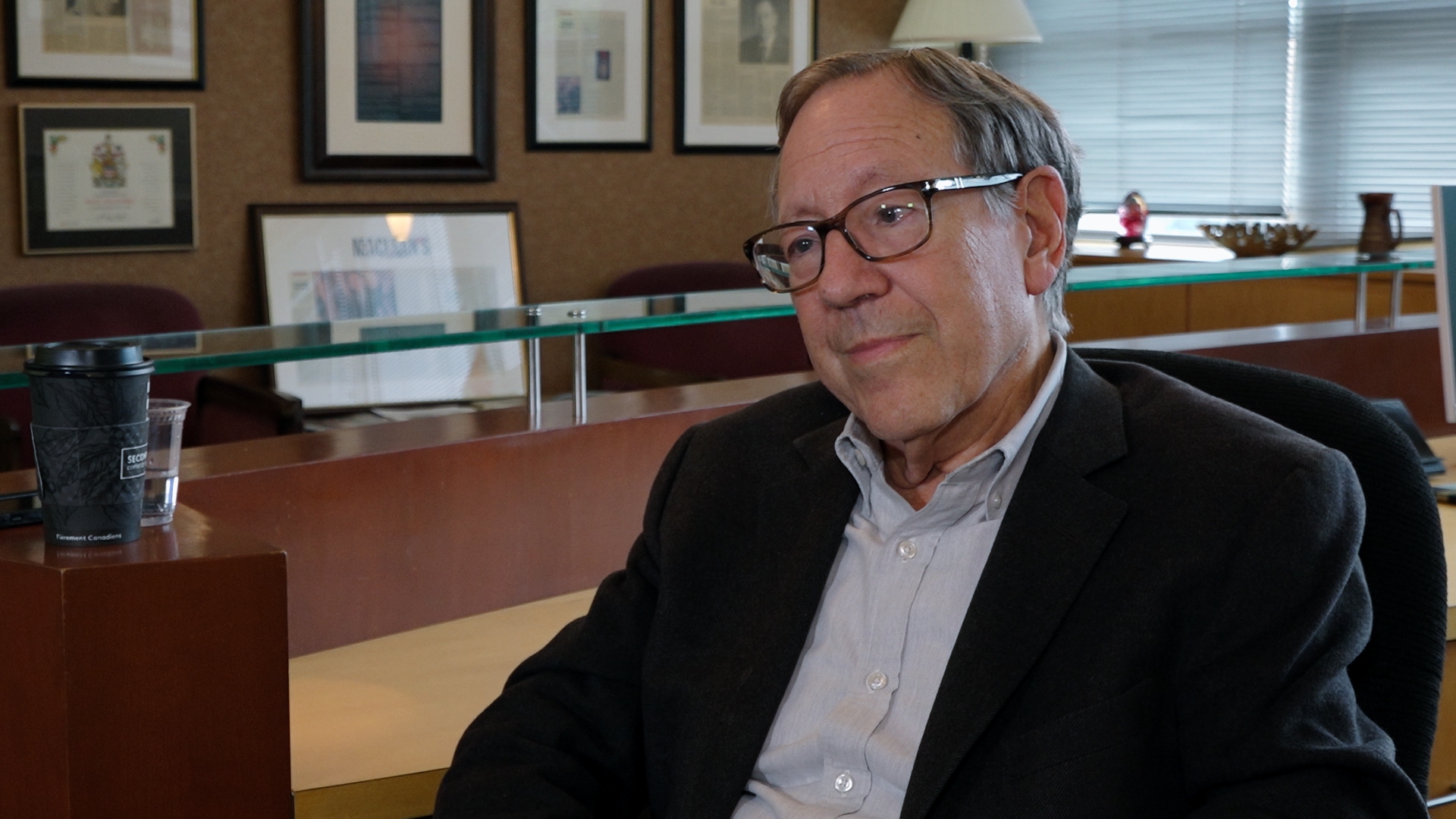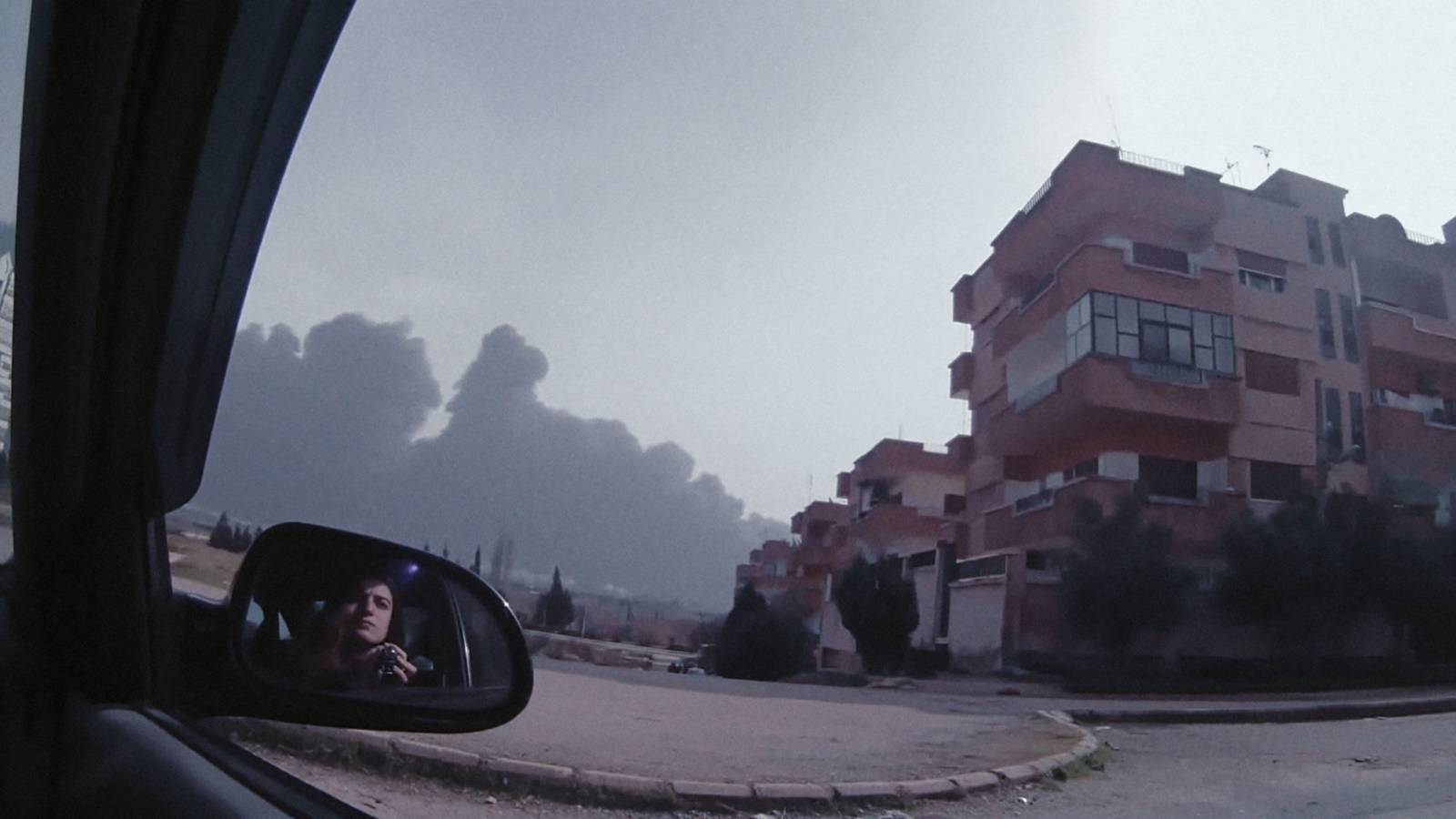Irwin Cotler is typically blunt when he describes his enthusiasm about a documentary being made about him. “I was a reluctant participant,” he says. “The film might have been enhanced had I been more engaged. I have to give the filmmakers all the credit when they had a rather unresponsive person on my part.”
The modesty is sheer Cotler. The resulting film, First to Stand, chronicles his remarkable track record, from both the perspective of someone inside and outside of government, of drawing attention to global human rights travesties. Perhaps his most famous case is that of Natan Sharansky, the Russian refusenik whose case Cotler championed, ultimately leading to Sharansky’s release in 1986. Cotler has since become involved in numerous cases involving those of Raif Badawi, the Saudi blogger who was sentenced to ten years in prison for making the case for free speech; Bill Browder, seen as one of Putin’s worst nemeses; Shaparak Shajarizadeh, who has fought the compulsory hijab in Iran; and Masih Alinejad, who kickstarted much of the current protest movement in Iran.
Cotler was also engaged in the movement to end apartheid in South Africa and free Nelson Mandela. Cotler was such a thorn in the side to Putin he was even poisoned by Russian authorities while in Moscow.
Despite his initial reluctance, Cotler agreed to let documentary cameras in to film him. The result is First to Stand: The Cases and Causes of Irwin Cotler, a rousing, inspiring look at the grave global injustices that have driven Cotler to be a thorn in the side of every and any government that oppresses its citizens unfairly.
A key part of the decision to say yes was the track record of doc vets Irene Angelico and Abbey Neidik. “I knew their work, and I went along with it because I knew it would help showcase the cases and causes, rather than myself,” says Cotler. “I hope that’s what comes across in the film, whether it be Raif in Saudi Arabia or Masih Alinejad in Iran. The filming began prior to the pandemic. Now Masih has become one of the most compelling advocates for change in Iran.”
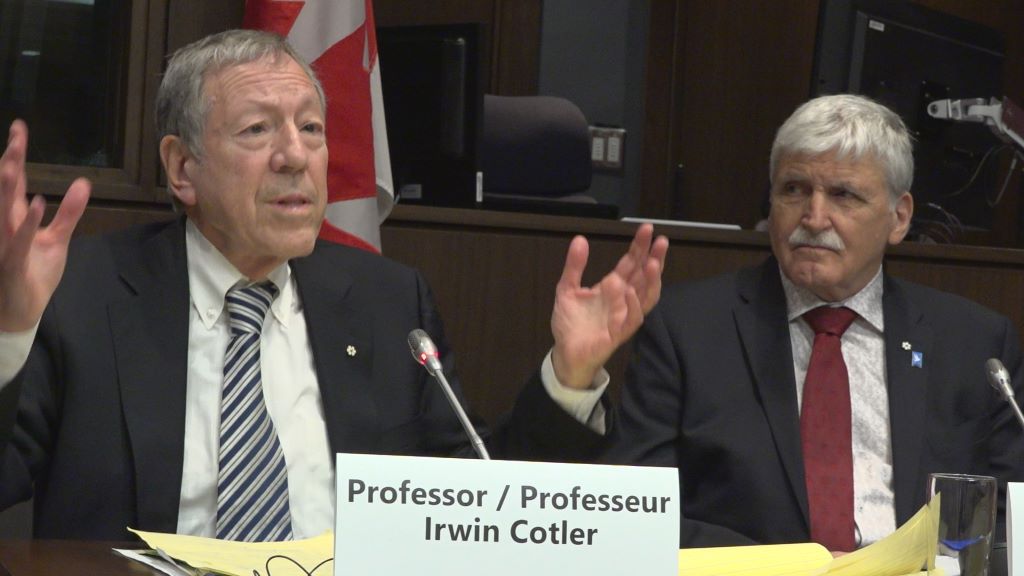
Cotler served as justice minister in the Canadian government as a Liberal MP, where his track record for advancing and expanding human rights was epic, and is now international chair of the Raoul Wallenberg Centre for Human Rights.
Given his varied experiences, it prompts the question of which case was the toughest. “The first one I found to be the most challenging,” Cotler responds. “When Sharansky was held in the Soviet Union, that case was very complicated. I was able to work with a number of different groups who were advocating for his release, from both within and outside of parliament. It was in that advocacy that I was able to develop a model for political prisoners.”
This involved the unusual step of lobbying the Soviet Union, a highly secretive dictatorship. “I was supposed to appear before the Soviet constitutional court. The government of Pierre Trudeau was going to transmit the legal brief for Sharansky there,” Cotler adds. “I met with Trudeau and asked him to formally convey it to the Soviet government. I still remember that conversation, because the brief was about 850 pages long. He said to me, ‘Okay, Cotler, I’ll take it home and read it over the weekend. If it’s good, you’ll have my support. If it’s lousy, I’ll kick your ass for wasting my weekend!’ [On Monday] He had the brief conveyed to the Soviet court.”
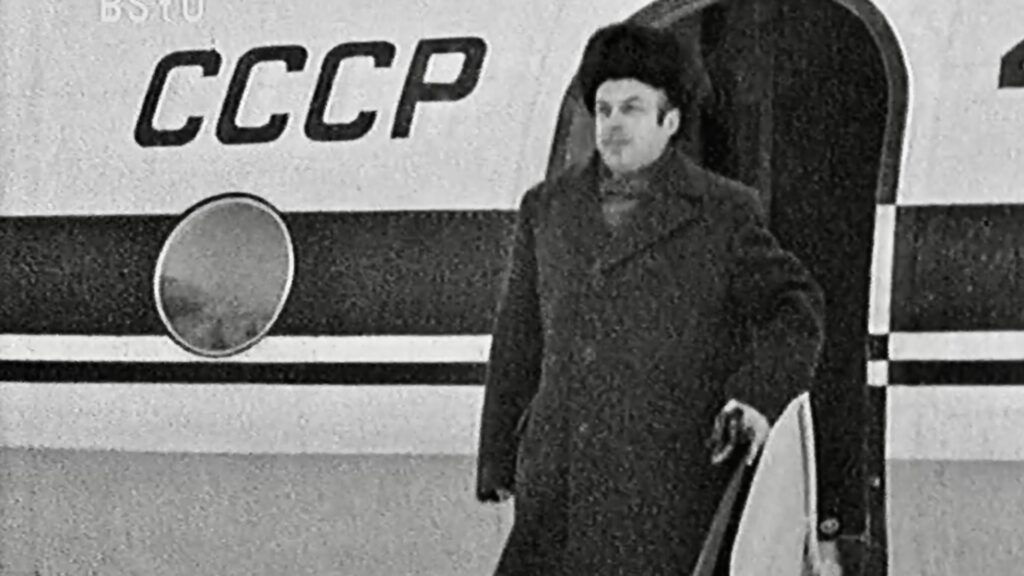
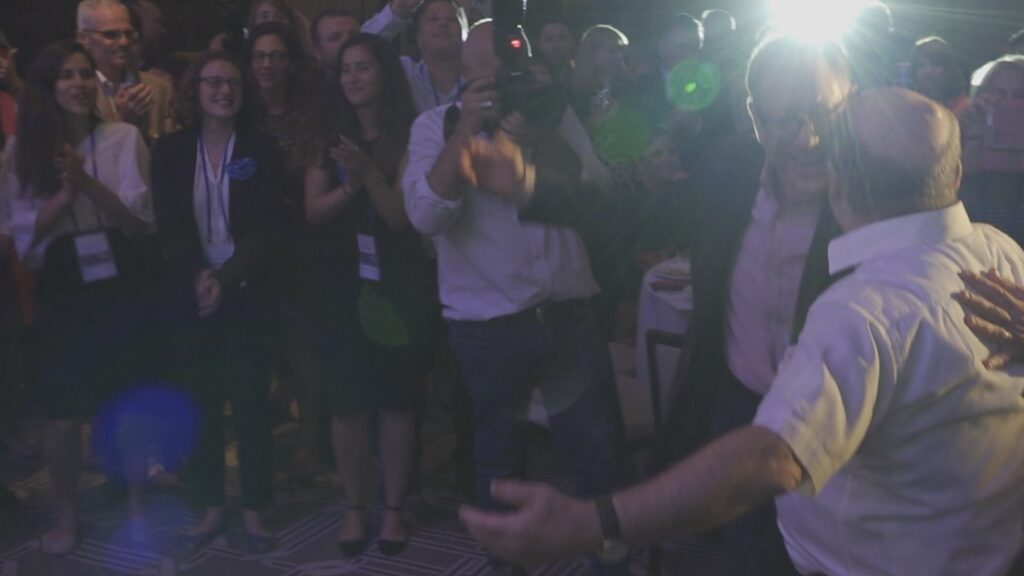
A year later, Joe Clark was then Prime Minister, and the government arranged for Cotler to appear in a Soviet court to make his case. “The day before the hearing, I asked the Soviet authorities if it was okay if I met with Sharansky’s parents, who were then holding a hunger strike. The authorities said it was okay, but on our way back from meeting with them, we were pulled over and interrogated for 45 minutes. I told them that the Soviet government had granted us permission to meet with Sharansky’s parents. Finally, they drove us back to the hotel.”
After getting back to the hotel, Cotler was told that the drivers were in fact KGB agents. He was then told he had to leave the Soviet Union immediately, meaning his presentation to the court wouldn’t happen. He only had time to pack his belongings, leaving the extensive legal documentation behind. The refusenik Alexander Lerner said to Cotler at the time, “Now you know what it’s like to live in the Soviet Union. Never let them see that you’re intimidated.”
When he got on the Japanese airways flight, the attendant asked for a boarding pass. “I don’t have one,” he responded, “I’m being kicked out of the country by the KGB.” He asked the flight attendant to contact both the Canadian embassy and the LA Times’ Moscow correspondent. When his flight landed in London, he phoned his wife to tell her that he’d been kicked out of the USSR. “I know already,” she responded. The LA Times had run with the story and headlines about Sharansky’s lawyer being kicked out of the Soviet Union were everywhere.
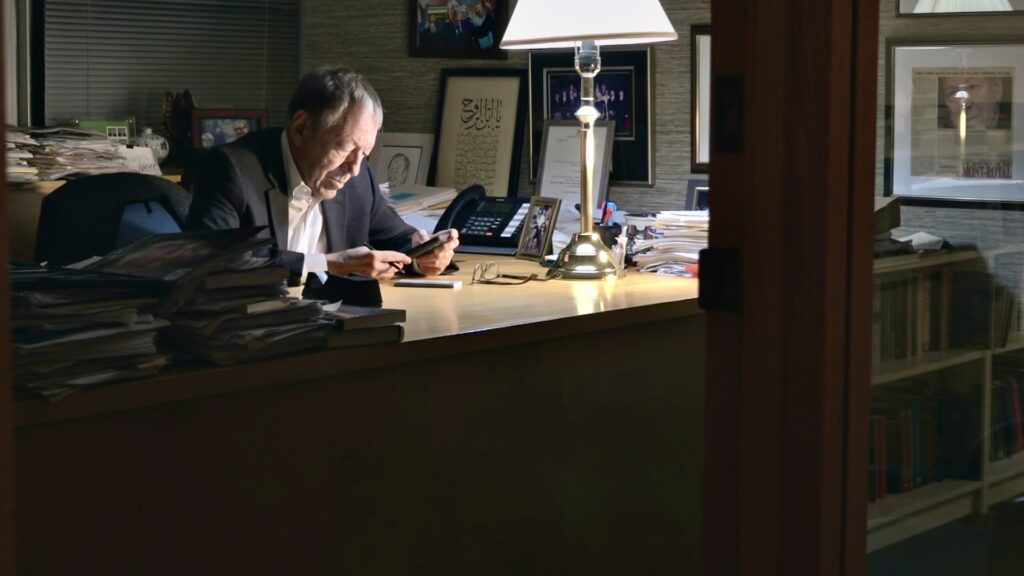
“I was happy to get out, but to be honest, I was troubled by the people I was leaving behind, people whose lives may have been threatened due to our contact with them,” reflects Cotler. But the ensuing publicity backfired on Soviet authorities, drawing more attention to Sharansky’s case and making them look even more unreasonable.
Cotler says he’s aware that some people have become cynical and apathetic, given the threats to democracy around the world and apparent steps backward in human rights. “When people express helplessness, I try to point to some of the models we look at in the film,” he observes. “Nelson Mandela spent 27 years in prison. He then emerged to not only preside over the dismantling of apartheid, but to become the first democratically-elected leader of an egalitarian, non-racist government of South Africa. And he emerged without any rancor and instead spoke of the important of education.
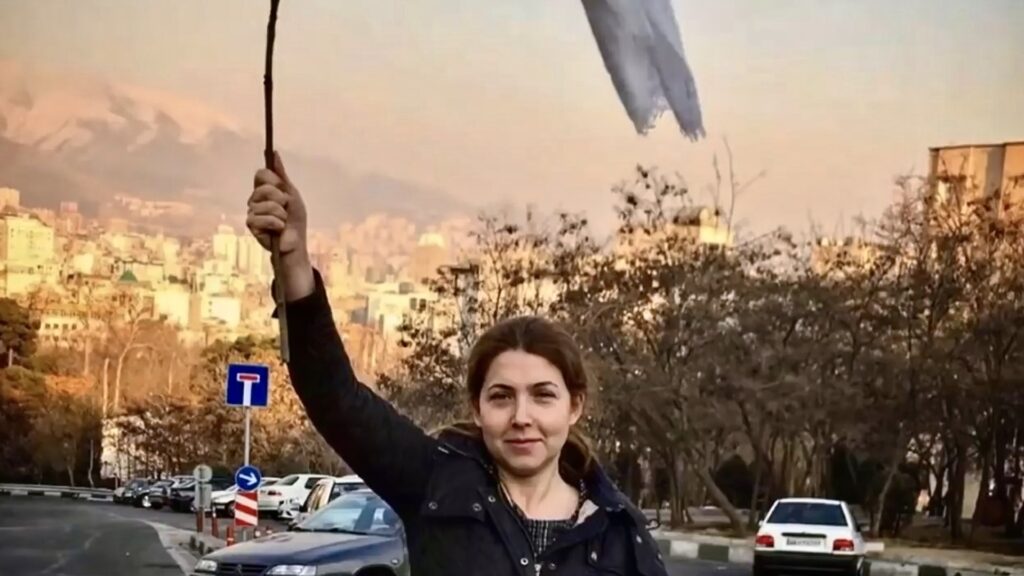
“I also point to the example of Raoul Wallenberg, someone who could show how one person with compassion could prevail and change history. He should be much better known: he arrived in the Swedish embassy and managed through his ingenuity to save 100,000 Jews from going to the camps, which would have inevitably led to their deaths. He shows us how one person can change history.”
Cotler’s perceptions of history changed as First to Stand was being completed. “What interested me as I watched the film is the role women are playing in these movements. This wasn’t something we foresaw when the filming began. What we’re seeing now, whether in Iran or Sudan or Venezuela, are women at the forefront of these revolutionary movements.”
First to Stand: The Cases and Causes of Irwin Cotler screens at the Hot Docs Ted Rogers Cinema on Sunday, Feb 5 at 4:30pm. Irwin Cotler will appear on Zoom for a post-screening Q&A with activist Shaparak Shajarizadeh and directors Irene Angelico and Abbey Neidik attending in person.




